Africa, to everyone, is a compromised continent. Yet sparks are emerging in various parts, including East Africa.
East Africa's history spans thousands of years, encompassing civilizations like the Aksumite Empire. It can be divided into prehistory, flourishing polities, colonial period, and post-colonial period. Prehistory dates back to the Middle Stone Age, with major polities being the Kingdom of Unyanyembe and the Kingdom of Urambo.
Table of Contents
The colonial period in East Africa, beginning in 1905, saw European powers occupy strategic points to secure India's western flank, resulting in the Kenyan independence struggle and cultural, economic, and political developments.
Image source: Africa - Political Map
East Africa is a region that comprises 13 countries and includes Burundi, Comoros, Djibouti, Eritrea, Ethiopia, Kenya, Rwanda, Seychelles, Somalia, South Sudan, Sudan, Tanzania, and Uganda.
Trends in Foreign Direct Investment in Africa
Foreign Direct Investment is considered a boon for under-developed countries. This is especially true for emerging nations within Africa since most have been subjugated to oppression to some degree.
In 2021, the continent experienced a record $83 billion in foreign direct investment, accounting for 5.2% of the global figure, with most African countries experiencing a moderate increase after the pandemic.
Image source: UNCTAD
Foreign direct investment in East Africa increased by 35% to $8.2 billion, while Ethiopia received $4.3 billion due to Chinese investment tripling, and Tanzania's FDI reached $922 million. Kenya remains a leader in FDI within East Africa, despite a decline in recorded projects in 2016 due to terror attacks.
In comparison, foreign direct investment in West Africa surged 48% to $14 billion, driven by Nigeria's oil and gas expansion, while in Southern Africa, it reached $42 billion due to corporate reconfiguration.
China and India remain significant sources of foreign direct investment in East Africa. FDI in the East African Community (EAC) predominantly concentrates on industrial, construction, and service sectors, with limited investments in agriculture. As such, opportunities exist in the East African countries for foreign businesses.
LISTEN TO THIS PODCAST: Inside Malawi with Attorney General Thabo Chakaka-Nyirenda: BITs, FDIs and Combating Corruption
Main Economic Activities in East Africa
Africa, as a whole, is blessed with material resources. For this article, let’s look into East Africa in detail.
East Africa's agriculture sector, a significant economic activity, employs over two-thirds of the population due to its fertile soil and favorable climate, attracting a variety of crops. The manufacturing sector, particularly in Uganda, Ethiopia, Tanzania, and Kenya, is experiencing growth in the production of foodstuffs, textiles, and other consumer goods. East Africa is a significant producer of essential metals and minerals like gold, diamonds, uranium, platinum, nickel, bauxite, and cobalt, which significantly contribute to the region's GDP.
The services sector, including tourism, transportation, telecommunications, and wholesale and retail trade, significantly contributes to the region's economy, especially in Kenya and Tanzania. The fisheries sector in East Africa is undergoing significant strengthening through stricter regulations and environmental management.
East Africa is expected to become the fastest-growing global economic region in the next two decades, largely due to the contributions of various sectors along with the population explosion.
Emerging Industries in East Africa
East Africa is home to several emerging industries which are driving economic growth and development in the region. The agriculture sector, notably in Kenya, Tanzania, and Uganda, is a significant player in the production of tea, coffee, and flowers.
East Africa's manufacturing sector, notably in Kenya and Tanzania, is a vital industry producing a wide range of goods including textiles, leather, food, beverages, chemicals, pharmaceuticals, plastics, and metal products. Economic growth relies heavily on the energy sector, with investments in renewable energy sources like solar and wind power, and infrastructure development projects like the Standard Gauge Railway.
Image source: Route of Standard Gauge Railway network in Kenya
The financial and insurance sector in East Africa is experiencing significant growth due to the expansion of financial services and the rise of the middle class. Tourism is a significant contributor to East Africa's economy, with Kenya and Tanzania being popular destinations. Growth is expected due to increased investment in tourism infrastructure and marketing efforts.
East Africa's ICT sector is rapidly expanding, with Kenya and Tanzania boasting a robust startup ecosystem and strong digital infrastructure, expected to continue growing due to increased investment and innovation. The region is focusing on the healthcare sector, investing in infrastructure and pharmaceuticals, with the sectors expected to grow due to rising demand and middle-class growth.
East Africa's logistics and supply chain management sector is a critical area, attracting investments in infrastructure and technology to enhance efficiency and reduce costs, fueled by increased trade and investment. The education and training sectors are crucial, with investments in infrastructure and programs expected to grow due to increased demand for skilled labor and middle-class growth.
Image source: Sustainability Development Goals of the United Nations
East Africa is prioritizing sustainable development, and investing in projects promoting environmental sustainability and social responsibility. The sector is expected to grow due to increased awareness and middle-class growth.
These emerging industries are driving economic growth and development in East Africa and are expected to continue to grow in the coming years.
As an expert in the field, Global Indian Network (GIN) facilitates collaborative initiatives to explore innovative approaches for a more inclusive and resilient future through Memorandums of Understanding (MoUs). Foreign investors can invest in East Africa to drive sustainable development and positively impact local communities. GIN has an eye-opener podcast The Economics of Pan-Africanism and Ugandanness with President Museveni.
Challenges Faced by Foreign Investors in East Africa
Any investor, be it an individual or a company, will be wary of committing to a deal in a foreign land. Yes, there are hurdles to overcome. Here, we highlight some of the challenges in East Africa.
International funds struggle with local issues, leading to longer deal-making processes and higher costs. Investors fiercely compete for post-revenue enterprises, resulting in high demand for small-ticket investments. These funds face local challenges, resulting in longer deal-making processes and higher costs, while intense competition for post-revenue enterprises drives high demand for small-ticket investments.
Foreign start-up founders often receive more capital, while local entrepreneurs make efforts to articulate business models due to complex regulatory environments, and time-consuming, and costly requirements for foreign ownership and land use.
East African firms face macroeconomic challenges like corruption, tax administration, and crime, while underdeveloped entrepreneurial infrastructure outside major cities hinders daily operations and scale.
In this context, Global Indian Network (GIN), an established organization that facilitates business partnerships between Indian and African businesses, can offer appropriate guidance. It can usher the path for foreign investors in navigating foreign direct investment in East Africa by providing access to local expertise, networking with stakeholders, and establishing mutually beneficial partnerships. Note that the co-founder and Chairman of Bidco Africa, Vimal Shah, has contributed to the website elaborating on business in Africa.
Navigating the Local Context
‘Think global, act local’ is an idea that would work in East Africa. Let’s delve deeper.
To effectively invest, investors must comprehend the local context, including cultural, economic, regulatory environments, entrepreneurial ecosystem, government policies, and talent availability, and build strong relationships with local stakeholders for success.
Strong relationships with local stakeholders, including entrepreneurs, government officials, and investors, foster trust and facilitate communication. Understanding local regulations and compliance requirements is crucial for successful investments. Collaborating with experts and lawyers is also essential.
Investors should support local entrepreneurs and invest in infrastructure development to improve entrepreneurial infrastructure, particularly outside major cities, fostering a sustainable and competitive ecosystem through training and mentorship opportunities.
Local and international investors can enhance regional investments' effectiveness and sustainability by leveraging expertise, resources, and networks. However, they must adapt strategies to macroeconomic challenges like inflation and living costs.
Government policies significantly impact the East African entrepreneurial ecosystem, necessitating investors to understand and collaborate with local authorities for development goals, continuously learning, monitoring impact, and making necessary adjustments for venture success.
Additionally, it is helpful to know that East Africa is experiencing a surge in infrastructure development, economic diversification, and regulatory reforms to attract foreign investment and promote business growth. The region's favorable investment climate and supportive government policies make it an ideal environment for businesses to thrive. Global Indian Network can steer foreign investors to navigate the market and capitalize on emerging opportunities.
Strategies to Reduce the High Costs of Investing
As they say, it is all about planning. In other words, ‘strategy’ is everything. We will uncover some potential ones here.
Investors can streamline deal closure by utilizing local expertise and building stakeholder relationships. Understanding local context, including cultural, economic, and regulatory environments, helps identify challenges, develop strategies, and increase investment success.
Strong relationships with local stakeholders, including entrepreneurs, government officials, and investors, are crucial for success. Investors can enhance entrepreneurial infrastructure by investing in infrastructure development and supporting local entrepreneurs, especially outside major cities.
Prioritizing local talent development and fostering collaboration between local and international investors can enhance the effectiveness and sustainability of regional investments by leveraging expertise, resources, and networks. To ensure long-term investment viability, investors must adapt strategies to macroeconomic challenges like inflation, limited credit, and high living costs, while strengthening regulatory frameworks and energy utilities' capacity can boost investor confidence.
African governments can boost growth by eliminating import duties and taxes on sustainable industries, lowering investment costs. Investors can support green venture founders by developing management systems, promoting digital technology, reevaluating operating models, and recruiting talent.
The focus should be on East Africa's political and economic stability, its robust growth potential, and its government's efforts in maintaining peace, implementing economic reforms, and investing in infrastructure to boost investor confidence and make it a promising investment destination.
Moving with the times is something that most entrepreneurs are known to deal with. Yet we would like to mentor you to make the journey easier.
Global Indian Network (GIN) partners with investors to provide local expertise, network with stakeholders, and establish mutually beneficial partnerships, encouraging decision-makers to explore the potential of foreign direct investment in East Africa. GIN has a Memorandum of Understanding (MoU) with the African Tourism Board - Africa's Next Big Thing: The Future of Travel and Investment Opportunities with Cuthbert Ncube.
Role of Government Policies in Foreign Direct Investment
The general business atmosphere has to be friendly and this is the responsibility of the government of any nation. It is prudent to have a fundamental understanding of East Africa.
East African governments, like Kenya, are implementing investment incentives to attract foreign direct investment, such as tax holidays, duty-free imports, and exemptions, while streamlining regulatory procedures, reducing bureaucratic red tape, and improving business licenses and permits.
The countries of East Africa have established Investment Promotion Agencies (IPAs) to boost FDI by providing information and support, while governments have invested in infrastructure development to improve the business environment. They have signed trade agreements like the African Continental Free Trade Area (AfCFTA) to boost trade and investment, while governments have implemented measures to protect foreign investments through investment protection agreements and dispute resolution mechanisms.
Governments are implementing tax incentives and investing in human capital development to attract foreign direct investment and enhance local workforce skills through education and training programs.
The East African Community (EAC) is promoting regional integration through a customs union, common market, and single currency, while governments are promoting digitalization and e-commerce to boost trade and investment.
ALSO READ: Malawi’s FDI Landscape: Opportunities, Challenges, and The Road Ahead in 2024
Investment Opportunities in East Africa
Finding reliable local partners for investments is crucial. Here are some steps you can take:
To identify potential partners, attend industry events, connect with local chambers, and utilize social media to research and network with potential partners, while also leveraging professional networks. Engage local consultants for market insights, and cross-border investment experience, and consider joint ventures or strategic partnerships with local companies to share risks and resources.
Image source: G20 summit of 2023
In the previous G20 summit of 2023, held in India, the African Union was made part of the group. This is a positive step for the African nations to become part of the global trade in a big way. The bilateral relations, already existing and new ones can be acted upon for the benefit of all involved.
To establish successful relationships, invest time in trust and understanding with potential partners, visit the region, meet in person, and maintain regular communication.
Dive deeper into exciting investment opportunities! Our "Destinations Page" provides comprehensive information about nations, outlining their economic climate and promising sectors. Explore them now and gain valuable insights to guide your investment decisions. Check out our extensive coverage of Uganda and Slovenia for specific examples.
Success Stories of Foreign Investment in East Africa
Competent businessmen would arm themselves with real-life examples when it comes to beginning enterprise abroad. Let’s assist you on this.
East Africa has seen significant foreign direct investment in various sectors, contributing to the region's economic growth. Here are some specific success stories:
Uganda's agricultural sector, particularly coffee, tea, and cotton production, is experiencing growth due to foreign investment, enhancing productivity and increasing exports. Tanzania's substantial gold, diamond, uranium, platinum, nickel, bauxite, and cobalt reserves attract significant foreign direct investment, contributing to the country's economic growth.
Image source: Coffee cultivation in Uganda
China has significantly invested in the Karimenu II Dam Water Supply Project in Kenya, enhancing the country's infrastructure and promoting economic growth.
Kenya's manufacturing sector, notably in foodstuffs and textiles, is experiencing growth, with foreign investors like Toyota and Systems, Applications, and Products in Data Processing (SAP) establishing facilities in the country to cater to the growing demand for consumer goods. The nation’s thriving horticulture sector, known for its high-quality flowers, fruits, and vegetables, is supported by foreign investments and greenhouses, contributing to its global export success.
These success stories demonstrate the potential for foreign investment in East Africa, particularly in infrastructure, manufacturing, mining, and agriculture.
In summary, East Africa is a promising market for foreign direct investment due to its robust economic growth, youthful population, and strategic location bridging Africa and the Indian Ocean. Global Indian Network (GIN) partners with foreign investors to establish mutually beneficial Memorandums of Understanding (MoUs) with local businesses and governments, leveraging their extensive network and expertise.
Successful Initiatives
Knowledge about existing entrepreneurial ventures adds value to decision-making. Let's explore some successful initiatives that address the challenges faced by the Indian diaspora, including Non-Resident Indians (NRIs) and Persons of Indian Origin (PIOs):
The Indian diaspora, comprising over 32 million Indians living outside India, includes NRIs and PIOs. Major hubs include the US, UAE, Saudi Arabia, Canada, and Australia. These communities contribute culturally and economically to their host countries through festivals, cuisine, arts, and Bollywood.
NGOs, like Smile Trust India, are instrumental in assisting the diaspora, promoting proactive strategies, peer collaboration, and innovation to enhance their effectiveness. Understanding India's challenges is crucial, and initiatives addressing sustainability trends can indirectly benefit NRIs and PIOs by creating a more resilient and inclusive homeland.
Organizations and Events for the Indian Diaspora
Here are some organizations that actively engage with the Indian diaspora:
The Indian Diaspora Council (IDC), established in 1997, is a global non-profit organization dedicated to promoting and enhancing shared heritage, aspirations, and interests of Indian-origin individuals worldwide, offering opportunities for members to connect, participate in events, and volunteer.
Indiaspora is a global network of Indian leaders from diverse backgrounds, aiming to inspire the diaspora to contribute to social change through collaboration, community engagement, and philanthropy, supporting causes aligned with their interests.
Indian Overseas Trust (IOT), established in 2002, supports British Indian diaspora interests through grants, including one from the National Lottery Heritage Fund, promoting engagement and collaboration between the diaspora and India.
Global Indian Network (GIN)
Global Indian Network serves as a dynamic platform uniting Indians across the globe, fostering connections, collaborations, and opportunities. The platform celebrates the diverse contributions of Indians worldwide, advocating for their empowerment and advancement. It promotes dialogue, knowledge sharing, and collective action towards common goals. The network is inclusive, empowering, and forward-looking, encouraging positivity, enthusiasm, and pride in Indian heritage and accomplishments.
Global Indian Network covers various topics like entrepreneurship, technology, culture, education, and social impact. It offers inspiring stories and practical resources for the global Indian diaspora. The platform is contemporary, engaging, and accessible, blending multimedia elements and user-generated content. It fosters connections, drives collaboration, and catalyzes positive change, empowering individuals to harness their potential and contribute meaningfully to the world. The content is categorized into headings such as Brown Business, Game Changers, Worldly Perceptions, Human Lab, Beyond the Studio, and more.
Rajan Nazran, Chief Explorer, with his career in exploration and media along with practical exposure in over 70 countries, is at the helm of affairs.
In essence, Memorandums of Understanding (MoUs) are crucial for boosting foreign direct investment in East Africa and fostering collaboration between investors and local businesses. Partnering with GIN allows investors to leverage the organization's extensive network to secure MoUs, thereby securing new growth opportunities.
Remember, these organizations play crucial roles in connecting, empowering, and advocating for the Indian diaspora as well as nations that would be interested in a fast-growing economy like India.
UK-Economic and Business Support (UK-EABS)
The UK-East Africa Business Summit (UK-EABS) is a non-profit event scheduled for September 6th, 2024. It is aimed at connecting businesses and investors in the UK and East Africa, promoting trade and investment between the two regions. Organized by Uganda Investment Convention UK, UCUK, and Indian Overseas Trust, it aims to foster strategic partnerships and enhance investment opportunities.
Uganda's First Deputy Prime Minister, Rebecca Alitwala Kadaga, will lead the East African delegation to the UK-EABS summit, indicating high-level support from East African officials. The event aims to connect cultures and bridge distances between the UK and East Africa, providing a platform for businesses and investors to learn about the investment climate and explore potential opportunities.
The expected outcomes are to facilitate sustainable and long-lasting business agreements and relationships between investors, diaspora members, entrepreneurs, and potential investors through B2B and B2G interactions.
The event will feature speakers from various heads of state, including Presidents Samia Suluhu Hassan from Tanzania, President William Ruto from Kenya, and President Paul Kagame from Rwanda. The summit provides a unique platform for collaboration, knowledge exchange, and investment in East Africa.
The UK-East Africa Business Summit is a crucial event that could boost East Africa's economic growth and development by attracting foreign direct investment from the UK and other nations.
Uganda-UK Convention
The Uganda-UK Convention (UCUK) is an annual business event aimed at boosting investments and expanding exports in East Africa. Hosted by the UK Convention, it connects business executives, buyers, sellers, exporters, and investors from Uganda, India, and the region. The 14th Annual UK-Uganda Trade & Investment Summit in 2024 will highlight East African opportunities. Willy Mutenza is the co-founder and chairman of the Uganda-UK Trade Summit.
The convention is a trade agreement between Uganda and the UK, aimed at promoting investment opportunities, fostering collaboration, and promoting market access for Ugandan products. It also focuses on infrastructure development, sustainable tourism, hospitality ventures, technology advancements, and healthcare challenges, aiming to foster innovation and growth in the region.
Recommendations to the Governments
We, at Global Indian Network, would like to put forth some recommendations for the governments of East Africa concerning the encouragement of foreign direct investments.
The East African governments can showcase successful investments in a region by showcasing examples of economic and social improvements, such as public-private partnerships, infrastructure projects, and thriving industries, to highlight the region's potential for lucrative returns.
Governments should prioritize transparency and a business-friendly environment by reducing bureaucratic hurdles, providing investor protection, and maintaining a transparent regulatory framework. Implementing reforms like simplified licensing processes and anti-corruption measures will attract investors seeking a reliable and predictable business environment.
The focus should be on sustainable and inclusive growth to attract responsible investors and foster long-term economic stability and social cohesion. This involves promoting sustainable development goals, renewable energy initiatives, and inclusive growth strategies that benefit all segments of the population, aligning with environmental, social, and governance (ESG) criteria.
By implementing these strategies, East African governments can set the narrative positively, promoting investment opportunities in an educated and compelling manner that resonates with potential investors worldwide.
LISTEN TO THIS PODCAST: Inside Malawi with Attorney General Thabo Chakaka-Nyirenda: BITs, FDIs and Combating Corruption
Conclusion
Foreign Direct Investment in East Africa has experienced significant growth in recent years, driven by a combination of factors such as economic liberalization, infrastructure development, and favorable business environments.
The market size, exchange rates, infrastructure, trade openness, natural resources, political stability, and investment incentives are among the most important factors influencing foreign direct investment inflows in East Africa. Policymakers should focus on improving these factors to create a more attractive environment for foreign investors.
To further increase FDI flows, the region has to take action on issues such as high external debt, infrastructure unavailability, trade barriers, regulatory uncertainty, market development, resource curse, access to finance, corruption, human capital, and regional cooperation.
Globalization is transforming the world economy, and strategic partnerships between East Africa and India are crucial for prosperity and development. Organizations like the Global Indian Network (GIN) facilitate collaboration, allowing businesses to leverage the strengths of both regions. Foreign investors can access new markets, technologies, and talent pools, contributing to the region's socioeconomic advancement. By aligning business objectives with the Sustainable Development Goals and embracing responsible investment practices, companies can create shared value and contribute to the region's social, environmental, and economic well-being, thus ensuring a win-win outcome.
As a foreign investor, remember that patience and persistence are key. Building strong relationships could take time, but it's essential for successful investments!





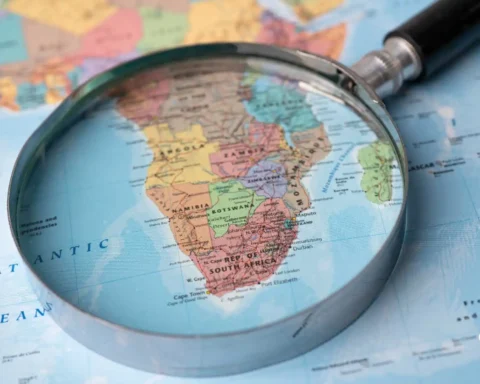
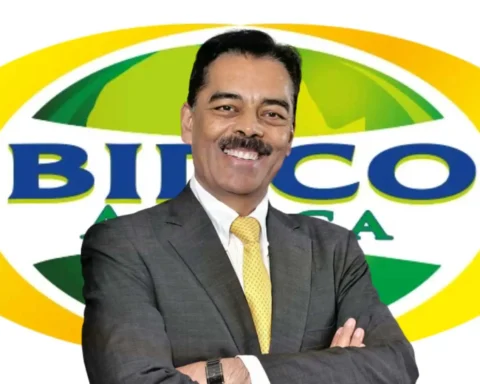
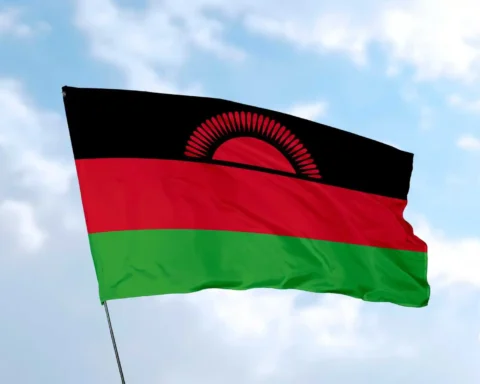
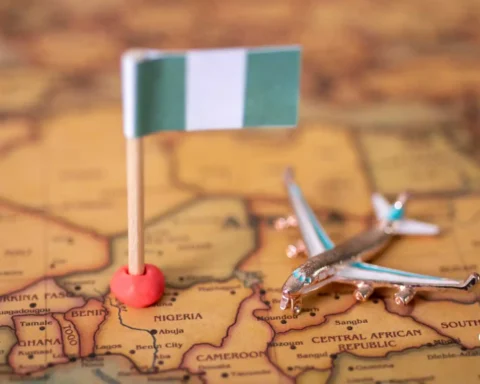
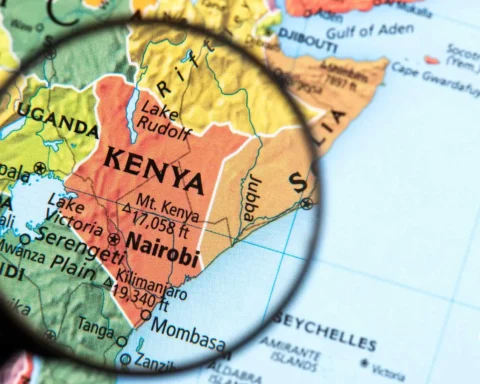

[…] its strategic joint ventures, and the key milestones that have marked its journey to becoming East Africa's FMCG […]